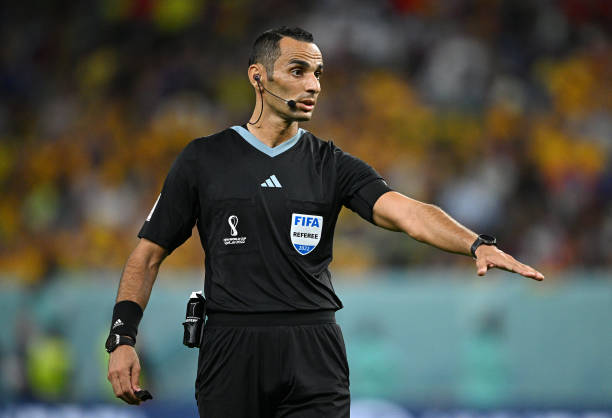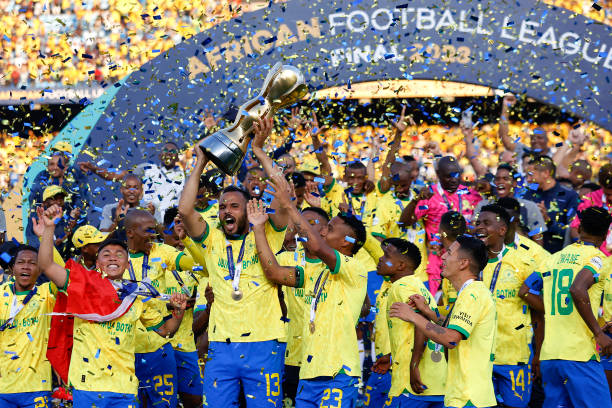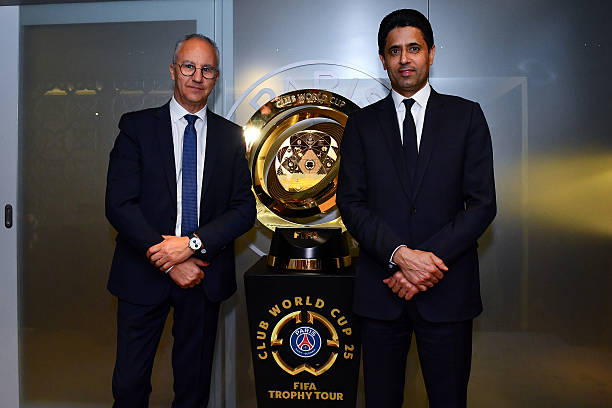
The 2025 FIFA Club World Cup promises to be one of the most ambitious and historic tournaments in football history, set to feature 32 elite clubs from across the globe in a month-long showdown in the United States. For the first time, FIFA is implementing a full-scale tournament model akin to the FIFA World Cup, making the 2025 edition a landmark moment in club football. This article explores the most powerful and defining aspects of the event that will make the 2025 FIFA Club World Cup unforgettable.
7. Historic Expansion of the 2025 FIFA Club World Cup Tournament Format
The 2025 FIFA Club World Cup marks the first time the competition will feature 32 teams, transitioning from the traditional 7-team format. FIFA’s move mirrors the men’s international World Cup structure, allowing more clubs from different confederations to participate.

This format includes automatic qualifications for previous continental champions between 2021–2024 and invites based on club rankings. It introduces a new competitive dynamic, group stages followed by knockout rounds, bringing global club football to a broader stage with greater intensity and unpredictability.
6. The United States as a Strategic Host
The choice of the U.S. to host the 2025 FIFA Club World Cup aligns with FIFA’s strategic vision of expanding football’s global appeal, especially in North America ahead of the 2026 FIFA World Cup. The tournament will be played across 12 stadiums in 11 cities, including iconic venues such as MetLife Stadium in New Jersey, SoFi Stadium in Los Angeles, and Mercedes-Benz Stadium in Atlanta.
Hosting the 2025 FIFA Club World Cup will not only showcase elite football to the American audience but also serve as a critical test run for infrastructure, logistics, and fan engagement for 2026.
5. African Referees Making History
For the first time in tournament history, 12 African referees have been selected to officiate at the 2025 FIFA Club World Cup, a move applauded across the continent. These include highly respected figures like Mustapha Ghorbal (Algeria), Dahane Beida (Mauritania), and Jean Jacques Ndala (DR Congo), along with assistant referees and VAR officials from Kenya, Senegal, Egypt, and Morocco.

Their inclusion represents FIFA’s commitment to diversity and technical development across all confederations, and it gives African officials a platform to shine on the global stage.

4. African Clubs Set for a Bold Showing
African giants such as Al Ahly (Egypt), Mamelodi Sundowns (South Africa), Espérance de Tunis (Tunisia), and Wydad Casablanca (Morocco) are confirmed to represent CAF at the 2025 FIFA Club World Cup. These clubs earned their place through stellar performances in the CAF Champions League.

With increasing investment, tactical discipline, and international exposure, African clubs are now more capable than ever of challenging European and South American dominance, and the 2025 FIFA Club World Cup could be their breakout stage.
3. Tech-Powered Officiating and VAR Enhancements
The 2025 FIFA Club World Cup will feature upgraded VAR technology, including semi-automated offside detection and improved real-time match data for referees. The officiating team will also benefit from wearable tech that tracks physical metrics to optimize decisions during high-pressure moments.
This advancement ensures more consistent decision-making and a fairer playing environment, strengthening the credibility and transparency of the competition.
2. Global Broadcast Reach and Fan Engagement
With expanded teams and a global host, FIFA expects the 2025 FIFA Club World Cup to reach over 2 billion viewers across digital and traditional platforms. Enhanced live streaming, behind-the-scenes content, and fan interaction features will bring supporters closer to the action than ever before.
Additionally, FIFA’s partnership with tech firms will allow for AI-powered predictions, fantasy football integration, and multilingual matchday experiences across multiple devices, reshaping fan engagement worldwide.

1. A Turning Point in Club Football’s Future
The 2025 FIFA Club World Cup isn’t just another tournament—it’s a clear message from FIFA that the globalization of club football is here to stay. By bringing together teams from all six confederations under a unified, competitive structure, FIFA is creating a platform where club prestige is earned on a global, not just continental, scale.
This change may influence club strategies, sponsorship deals, and even player transfers. Clubs that perform well in the 2025 FIFA Club World Cup will gain global recognition, commercial leverage, and a stronger voice in international football politics.
SUGGESTED FOR YOU
Dortmund vs Barcelona: Guirassy’s Stunning Hat-Trick in Vain – 1 Player, 3 Goals, Endless Pride
Conclusion: Why the 2025 FIFA Club World Cup Will Be a Game-Changer
The 2025 FIFA Club World Cup is not just a rebranded tournament—it is the future of club football. With 32 teams, global referees, cutting-edge technology, and a massive North American stage, the event promises high stakes, intense rivalries, and unforgettable football moments. It is where continents collide, underdogs rise, and legends are born.
As FIFA’s blueprint for the future unfolds, all eyes will be on the United States from June 14 to July 13, 2025. This is not just a tournament—it’s history in motion.









